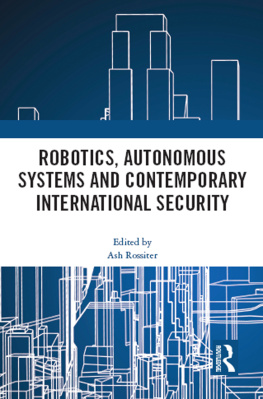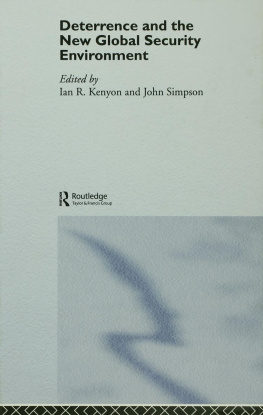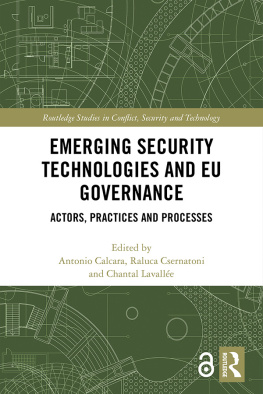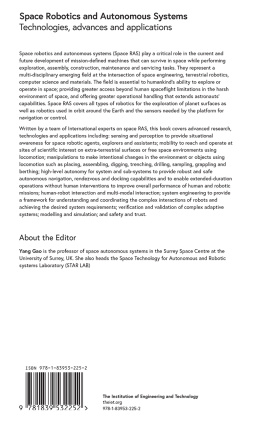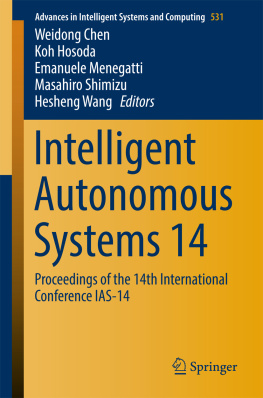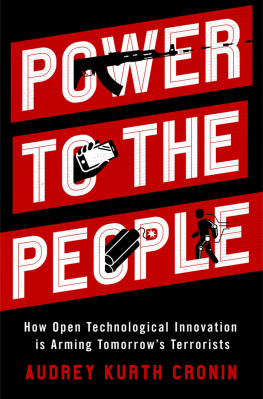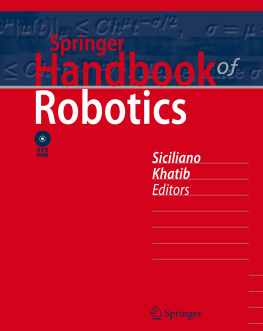Robotics, Autonomous Systems and Contemporary International Security
Rapid technological advances in the field of robotics and autonomous systems (RAS) are transforming the international security environment and the conduct of contemporary conflict. Bringing together leading experts from across the globe, this book provides timely analysis on the current and future challenges associated with greater utilization of RAS by states, their militaries, and a host of non-state actors.
Technologically driven change in the international security environment can come about through the development of one significant technology, such as the atomic bomb. At other times, it results from several technologies maturing at roughly the same pace. This second image better reflects the rapid technological change that is taking us into the robotics age. Many of the chapters in this edited volume explore unresolved ethical, legal, and operational challenges that are only likely to become more complex as RAS technology matures. Though the precise ways in which the impact of autonomous systems both physical and non-physical will be felt in the long-run is hidden from us, attempting to anticipate the direction of travel remains an important undertaking and one that this book makes a critical effort to contend with.
The chapters in this book were originally published as a special issue of the journal Small Wars & Insurgencies.
Ash Rossiter is Assistant Professor of International Security at Khalifa University, UAE. His research rests at the nexus of technology and international security and he has published widely on this theme in journals such as Parameters and Defence Studies. He is author of the book Security in the Gulf (2020).
Robotics, Autonomous Systems and Contemporary International Security
Edited by
Ash Rossiter
First published 2021
by Routledge
2 Park Square, Milton Park, Abingdon, Oxon OX14 4RN
and by Routledge
52 Vanderbilt Avenue, New York, NY 10017
Routledge is an imprint of the Taylor & Francis Group, an informa business
2021 Taylor & Francis
All rights reserved. No part of this book may be reprinted or reproduced or utilised in any form or by any electronic, mechanical, or other means, now known or hereafter invented, including photocopying and recording, or in any information storage or retrieval system, without permission in writing from the publishers.
Trademark notice: Product or corporate names may be trademarks or registered trademarks, and are used only for identification and explanation without intent to infringe.
British Library Cataloguing in Publication Data
A catalogue record for this book is available from the British Library
ISBN 13: 978-0-367-62374-6
Typeset in Myriad Pro
by Newgen Publishing UK
Publishers Note
The publisher accepts responsibility for any inconsistencies that may have arisen during the conversion of this book from journal articles to book chapters, namely the inclusion of journal terminology.
Disclaimer
Every effort has been made to contact copyright holders for their permission to reprint material in this book. The publishers would be grateful to hear from any copyright holder who is not here acknowledged and will undertake to rectify any errors or omissions in future editions of this book.
Contents
Ash Rossiter
Marc R. DeVore
Francesco F. Milan and Aniseh Bassiri Tabrizi
Farooq Yousaf
Brendon J. Cannon
Andree-Anne Melancon
Aiden Warren and Alek Hillas
Ash Rossiter
Peter Layton
Guilong Yan
The chapters in this book were originally published in Small Wars & Insurgencies, volume 31, issue 4 (June 2020). When citing this material, please use the original page numbering for each article, as follows:
The impact of robotics and autonomous systems (RAS) across the conflict spectrum
Ash Rossiter
Small Wars & Insurgencies, volume 31, issue 4 (June 2020), pp. 691700
Reluctant innovators? Inter-organizational conflict and the U.S.A.s route to becoming a drone power
Marc R. DeVore
Small Wars & Insurgencies, volume 31, issue 4 (June 2020), pp. 701729
Armed, unmanned, and in high demand: the drivers behind combat drones proliferation in the Middle East
Francesco F. Milan and Aniseh Bassiri Tabrizi
Small Wars & Insurgencies, volume 31, issue 4 (June 2020), pp. 730750
U.S. drone campaign in Pakistans Pashtun tribal region: beginning of the end under President Trump?
Farooq Yousaf
Small Wars & Insurgencies, volume 31, issue 4 (June 2020), pp. 751772
Whats in it for us? Armed drone strikes and the security of Somalias Federal Government
Brendon J. Cannon
Small Wars & Insurgencies, volume 31, issue 4 (June 2020), pp. 773800
Whats wrong with drones? Automatization and target selection
Andree-Anne Melancon
Small Wars & Insurgencies, volume 31, issue 4 (June 2020), pp. 801821
Friend or frenemy? The role of trust in human-machine teaming and lethal autonomous weapons systems
Aiden Warren and Alek Hillas
Small Wars & Insurgencies, volume 31, issue 4 (June 2020), pp. 822850
Bots on the ground: an impending UGV revolution in military affairs?
Ash Rossiter
Small Wars & Insurgencies, volume 31, issue 4 (June 2020), pp. 851873
Artificial intelligence, big data and autonomous systems along the belt and road: towards private security companies with Chinese characteristics?
Peter Layton
Small Wars & Insurgencies, volume 31, issue 4 (June 2020), pp. 874897
The impact of Artificial Intelligence on hybrid warfare
Guilong Yan
Small Wars & Insurgencies, volume 31, issue 4 (June 2020), pp. 898917
For any permission-related enquiries please visit:
www.tandfonline.com/page/help/permissions
Brendon J. Cannon, Institute of International and Civil Security, Khalifa University, Abu Dhabi, UAE.
Marc R. DeVore, School of International Relations, University of St. Andrews, UK.
Alek Hillas, School of Global, Urban and Social Studies, RMIT University, Melbourne, Australia.
Peter Layton, Griffith Asia Institute, Griffith University, Brisbane, Australia.
Andree-Anne Melancon, Department of Defence and International Affairs, Royal Military Academy Sandhurst, UK.
Francesco F. Milan, Department of Defence Studies, Kings College London, UK.
Ash Rossiter, Institute of International and Civil Security, Khalifa University, Abu Dhabi, UAE.
Aniseh Bassiri Tabrizi, International Security Studies, Royal United Services Institute, London, UK.
Aiden Warren, School of Global, Urban and Social Studies, RMIT University, Melbourne, Australia.

